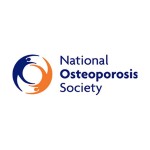
Bone drugs may not protect women with osteoporosis from breast cancer after all
 Osteoporosis drugs – known as bisphosphonates – may not protect women from breast cancer as was previously thought, highlights research published in JAMA Internal Medicine. The new analysis of clinical trial data suggests that earlier evidence was misleading.
Osteoporosis drugs – known as bisphosphonates – may not protect women from breast cancer as was previously thought, highlights research published in JAMA Internal Medicine. The new analysis of clinical trial data suggests that earlier evidence was misleading.
Several observational studies showed that women who took bisphosphonates were less likely to get breast cancer. But when researchers assessed the effect of two of the most widely used osteoporosis drugs – Fosamax and Reclast – in two large trials (involving a total of 14,224 women), neither drug protected women with osteoporosis from getting breast cancer.
The researchers involved suggest that the link found in the previous studies between taking the drugs and having a lower incidence of breast cancer may be due to a third factor: low oestrogen.
Having low oestrogen both weakens bones and protects against most breast cancers, which means that the women most likely to be prescribed drugs for osteoporosis are usually also at lower risk for breast cancer.
“They may have seen a lower risk of breast cancer in women using bisphosphonates in the earlier observational studies because those women had a lower risk of breast cancer to begin with,” explains Dr Trisha Hue, lead author.
Prof Steven Cummings, a co-author, says that women should not take these drugs thinking they will protect them from breast cancer:
“Post-menopausal women should continue taking these drugs for the prevention of fractures, but they should not use bisphosphonates for the prevention of primary breast cancer.”
For more on osteoporosis contact the National Osteoporosis Society: www.nos.org.uk.
